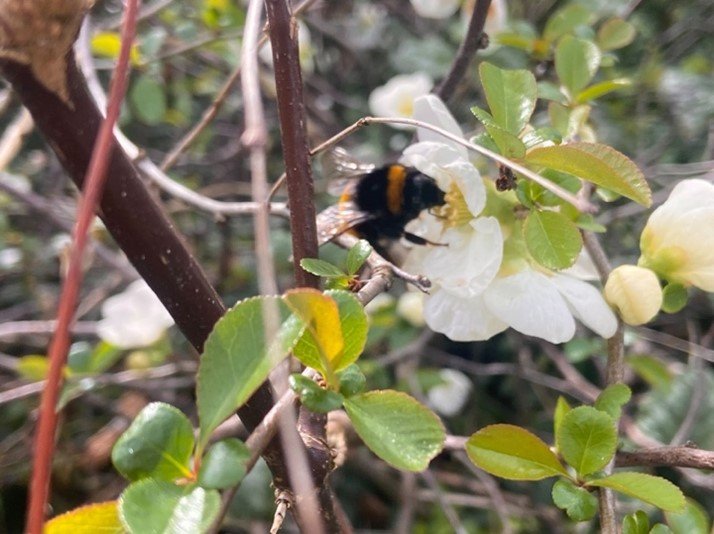Qualitative Research Podcasts
Want to hear about emerging, interesting qualitative methods topics from leading researchers? Check out the Between the Data podcast series from Nvivo. Interviewer Dr. Stacy Penna, NVivo Community Director, focuses on thought-provoking innovations and usable strategies. You can find the Nivo series on Apple Podcast, Spotify, Stitcher, Amazon Music, Google Podcast, Overcast, Pocketcast, Castro and Castbox.
Here are a few podcasts from Nvivo that feature SAGE Authors:
If you order their books from SAGE, use the code MSPACEQ322 for a 20% discount.
In this podcast episode, we discuss with Dr. Janet Salmons, Research Community Manager at SAGE MethodSpace the current state and the future of conducting qualitative research online, with a focus on ethics. This discussion draws on the second edition of her book Doing Qualitative Research Online.
Navigating Online Qualitative Research Effectively and Ethically
In this podcast episode, Johnny Saldaña, Professor Emeritus from Arizona State University’s School of Film, Dance, and Theatre, discusses his career with qualitative inquiry from ethnodrama, teaching research methods to writing a coding manual.
Dr. Saldaña is the author of numerous books from SAGE, including the most recent edition of The Coding Manual for Qualitative Researchers.
Drama in Qualitative Inquiry with Johnny Saldaña

Dr. Victoria Clarke
In this podcast episode, the discussion is with Dr. Victoria Clarke from the Department of Health and Social Sciences at the University of the West of England. Victoria collaborates with Dr. Virginia Braun from the School of Psychology at The University of Auckland, New Zealand. We discuss their work on Reflexive Thematic Analysis and specifically their 2006 article, Using Thematic Analysis in Psychology in the Qualitative Research in Psychology Journal. Clarke and Braun are co-authors for Thematic Analysis: A Practical Guide.
Accidental Methodologists: A Discussion with Dr. Victoria Clarke on Reflective Thematic Analysis, Part 1
New Ways of Thinking: A Discussion with Dr. Victoria Clarke on Reflective Thematic Analysis, Part 2

Dr. Lynn Butler-Kisber
In this podcast episode, we will be speaking with Dr. Lynn Butler-Kisber, Professor of Education in the Department of Integrated Studies at McGill University, focusing on her work around past, current, and future perspectives within arts-based inquiry from her book Qualitative Inquiry, Thematic, Narrative and Arts-Based Perspectives.
Arts-Based Inquiry with Dr. Lynn Butler-Kisber
More Methodspace posts about qualitative research
Interviews with this year's winners of Sage's 10-year-impact award, Elo Satu and Helvi Kyngäs.
Typically, interviewers are accustomed to using words: we ask questions, we prompt follow-up responses, but the same principles of visual communication are true for research exchanges. Find tips and examples in this post.
Qualitative researchers often collect very personal data, whether in interviews or in narratives, diaries, or other records that depict their experiences. One way to protect their identities is by changing their names, and anonymizing the data.
What if we didn’t have to go fast to do our academic work and research? What if we could embrace the spaces and places around us to slow down? What could that mean for us personally, professionally, and in how we relate to social justice and ecological issues?
by Maria Lahman, Ph.D. and Tyler Kincaid Ph.D., panelists for the How to Do Research and Get Published webinar, “How to write a paper: Qualitative methodology” share their insights.
Learn about connecting the unit of analysis with the qualitative methodology.
Sometimes taking a break from the keyboard to write by hand unleashes creativity.
Learn how inductive and deductive styles of reasoning are used to interpret qualitative research findings.
Situational analysis invites researchers to explore relationships and patterns in the data by creating visual maps as part of the analytic process. Co-authors of the book on this analytic method presented a webinar - view it here.
Video capture is ubiquitous. What does it mean for researchers, and how can we analyze such data?
Qualitative data analysis varies by methodology. Learn about approaches for phenomenological studies through this collection of open access articles.
Learn about qualitative data analysis approaches for narrative and diary research in these open access articles.
Ethnography involves the production of highly detailed accounts of how people in a social setting lead their lives, based on systematic and long-term observation of, and discussion with, those within the setting.
Qualitative data analysis varies by methodology. Discover diverse ways to analyze data for grounded theory studies in these open access articles.
Qualitative data analysis varies by methodology. Learn about approaches for action research in these open access articles.
While reflexivity is a concept quite familiar to qualitative researchers, the idea of ‘technological reflexivity’ may be less so. Find information about October 2023 events and articles.
How can you study digital culture and activism? Watch this interview with Dr. Lyndon Wray.
Look at the choices of video methods made by authors of four research articles.
This collection of open-access articles includes qualitative examples of analysis strategies to use with multimedia video data.
How do we understand and interpret visual or video data? See these open-access articles for ideas and examples.
Find a collection of open-access articles about analyzing and interpreting photos generated by participants using photovoice mmethods.
























Do you have concerns about how to carry out data collection with vulnerable populations online? Find research strategies for reaching vulnerable people online.